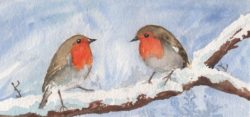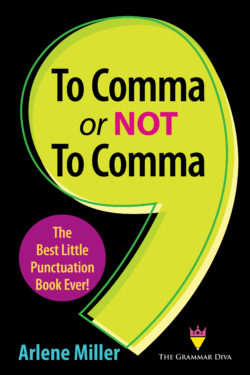 I am happy to present to you a guest post by Jags Arthurson . . .
I am happy to present to you a guest post by Jags Arthurson . . .
I love words. Not just the meaning of words but their etymology: where they came from; how they evolved; how their meanings, sounds, and rhythms have changed with changing culture and social mores. Words tell us so much about how times and thinking have evolved. For example, think of all the words earlier generations used that are no longer acceptable or “politically correct.” And swear words—the worst words we can utter—lose their impact and soften over time. “By Our Lady” (absolutely obscene in the Middle Ages) became “bloody” (still quite risqué when I was 11 and caned for using it), now so mild as to be almost acceptable in front of children.
Every concept needs words to express it and without the words simply cannot exist. The Sami people of Lapland, the so-called “Eskimos of Europe,” have nearly ninety words for snow. They need these in order to survive. We get by with snow, sleet, slush and a few others, but they need to be able to tell each other when snow is safe to walk on or if it will swallow a sled and team in an instant. Will it allow fast passage? Or cling to the runners, dragging on progress and tiring the reindeer? (Try Miss Smilla’s Feeling for Snow by Peter Høeg.)
On the other hand, giving certain meanings to words can control the way we think. There are people in Africa who physically cannot tell the difference between certain shades of blue and green … because they use just one word to describe all those colours. This idea is explored in some detail in George Orwell’s 1984 when Big Brother changes the meaning of words on an almost daily basis in order to control the thinking, and therefore behaviour, of the people.
And if you think you are immune, here is a perfect example:
In Europe we have a bird, the European Robin, Erithacus rubecula. “Robin Redbreast”—usually depicted standing on a snow-covered log—adorns Christmas cards across the globe, even in countries that have never seen a living example of the creature.
Ask anybody, from the tiniest tot to a grown adult, to draw one or colour in an outline, and the first colour they will reach for is scarlet. Everybody knows the colour.
So red are the chest feathers of this bird that there are folk stories from across Europe telling how this colour arose, mainly involving the blood of Christ during the crucifixion.
When the Victorians introduced the world’s first national postal delivery system, the delivery boys’ uniforms included a crimson waistcoat and they were immediately nicknamed “Robins.”
In Latin rubecula indicates “red.”
But there is a problem because the breast of the European Robin is not red—it’s orange! Even people who see these birds on an almost-daily basis will insist this statement is incorrect, and the breast is red. Shown a photograph as proof, they may suggest there was something wrong with the development process, or the film, or the camera … anything except that they might have been misled, or have misled themselves, all these years. Okay, have you just Googled “European Robin”? Were you surprised that I am right? Proof of the power of words.
So how did this strange situation come about?
The problem is that the bird has existed alongside man for tens of thousands of years, but the word orange didn’t enter the English language until the sixteenth century. Until then there was “red” and variations of “red.” The nearest the language had to orange was “yellow-red” (geoluread—geh-olloo-reh-ahd—in Old English). But “Robin Geoluread-Breost” doesn’t have much of a ring to it, does it?
The word orange probably originated as the name of the fruit in Sanskrit or Tamil, arriving in Europe via the Arabic naranj (they’re all very similar to modern Spanish’s naranja). When the Europeans acquired the “yellow-red” fruit, they started using the name to describe the colour.
But wait a minute. How did naranj morph into orange? By a process called “rebracketing” or “wrong word division,” and it’s easy to see how “a naranj” became “an aranj” and finally “an orange.” This process was also seen when, for example, a napron became an apron, or in reverse when an eke name (literally an “also name”) became a nickname.
But orange presented another difficulty to the English language in that it is one of the few words for which there is not a perfect rhyme. But on that score I think we might also have struggled with geoluread too.
Jags Arthurson
Jags Arthurson is the pen name of a Brighton, UK writer. Jags has been a research chemist and company director. He has lived and worked in over 40 countries. His acclaimed first novel, the crime thriller Pagan Justice, is available on Amazon with all proceeds going to charity.
*********************************************************************
Grammar Diva News
Saturday, September 8 is a big day!
Come to Writer’s World, presented by the Bay Area Independent Publishers Association! Bring a friend and one of you gets in for FREE! Many speakers, vendors and workshops for writers, editors, indie publishers, and anyone interested in the world of writing and publishing. I will be speaking at 11 a.m. about The Wonderful World of Words: What is the difference between a writer and an author? What leeway do writers have in following/breaking grammar rules? Grammar and Punctuation Q and A, and Word Trivia! Click here for details!
That same day, from 2 to 5 p.m., come on down to the Petaluma branch of the Sonoma County Library to meet (and buy books from) 30 local authors. I will be there with my books.
Finally, after much tribulation….To Comma or Not to Comma is out in print as well as e-book format. Check it out on Amazon. It will also be available for sale at both the aforementioned events!




Interesting information. I also find it interesting that when I did look up the European Robin (as he knew I would) it’s also not just an orange breast but an orange face as well. That could have had a further impact on the final word. I note it because the American Robin clearly does only have an orange breast.
Yes, he has an orange face! Maybe he’s blushing at the deceit.
Thank you for sharing that post. It’s hard to remember that our language is dynamic, always changing.
I remembered getting punished for uttering “heck” out loud in my mother’s presence when I was an adolescent. I think my mother felt that word was close to saying “hell.”Now I rarely hear anyone using the word (heck).
It saddens me when I hear professionals get into a rut, overworking words and not making the effort to find the specific word to fit the description.
Enough of my rambling. Thank you for sharing the post.
Thanks for the comment! It wasn’t technically a share. M. Arthurson wrote that great post as a guest poster to the blog. Glad you liked it!
Hi Lila,
Yes, ‘heck’ is a distortion of ‘hell’. It’s notable that our swear words used to be mainly religious; heck, bloody, damn but are now more focused on the sexual and lavatorial. A sign of our more secular age, perhaps.
Thank you for your comment
Jags
Hi Lila,
Glad you liked it. Yes, ‘Heck’ was, indeed a distortion of the word ‘Hell.’
What you’ll notice is that all the swear words of years gone by were religious; heck, bloody, damn, etc. Now they’re all sexual. Maybe it’s a sign of our more secular age.
Thanks for the nice comments.
Jags